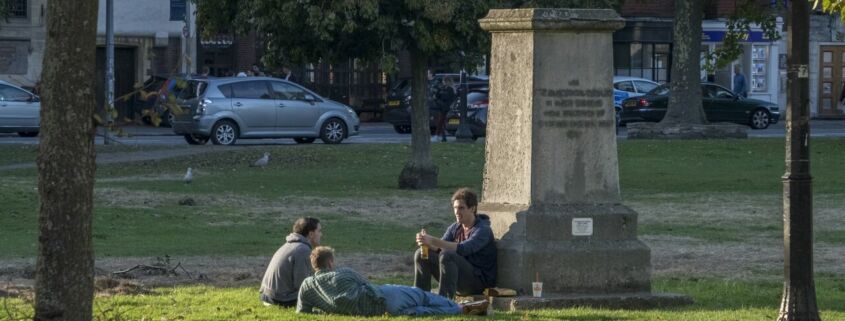Call for Proposals: Towards a materialist theory of the monument
Call for Proposals
Towards a materialist theory of the monument
Monuments are objects of study in terms of their conservation and restoration; they are planned and installed by the state, companies, and institutions; they are destroyed by social movements and in war contexts; they are the object of community mobilisations and self-managed construction under popular subscription. Monuments are social signs of particular importance in public space, embodying the will to represent a specific social group, and their meaning is intended to be fixed.
However, despite its undeniable social relevance and the polysemy that the form itself can acquire, the monument has been negated and denigrated by contemporary art. Assumed to be an obsolete aesthetic, post-minimalist hermetic aesthetics have been classified as “post-monument”, “counter-monument”, “anti-monument”, or “memorial” as a superseding of the previous form of representation in public space. However, they do not cease to be just another monument also used ideologically. These proposals reproduce idealistic conceptions. The artist appears in them as an agent capable of revealing the truth about the past through formal illusions.
Furthermore, the academic literature affirms the popularisation of the notions of “Places of Memory”, “Cultural Memories”, and “Post-memory” in a long list of concepts which presume a post-political vision of the monument based on the subjectivity of experience, on prioritising individual memory, or on identity politics.
However, our aim is to confront this vision of the monument by adopting a materialist viewpoint. We propose to analyse the purpose of the monument, its historicity, its determining factors, and the social relations it incorporates. What does it mean to erect, conserve, pay homage to, dismantle, deconstruct, or demolish monuments. We propose a reading of the monument as a significant gesture within the framework of social struggles, thereby breaking with the subjectivist reading of the memory. We are committed to examining the historical consciousness expressed in the way of producing and relating to the monument.
This proposal calls for contributions from the fields of history, art history, sociology, cultural studies, philosophy, anthropology, gender studies and other related disciplines to investigate the following issues:
- Monument theory and its historical raison d’être.
- The political economy of the monument, who produces them, from the state to the general public.
- The meanings and re-significations of monuments as ideological signs.
- The production of monuments and their destruction: historical dialectics, iconoclasm, popular, anti-colonial, anti-patriarchal movements.
- Critical questioning of dominant positions in memory studies and their interpretation of monuments.
We put forward these questions with the intention of contributing to the knowledge of the monument, given the need to generate an interpretative framework on monuments that opens up the field of study. At the same time, we raise questions regarding current trends which, as in the case of art history, have neglected one of the representations to which society and institutions pay greater attention.
Submissions:
- Proposals should be up to 600/800 words in length.
- They may be submitted in English and Spanish.
- Proposals by artists for editable visual essays in book format will be accepted.
- Proposals will be accepted until 31 January 2023.
- Proposals should be sent to: josemaria.duranmedrano@lba.hfm-berlin.de
Proposals will be evaluated within 15 days. Authors of selected proposals will be invited to submit by 31 May a full version of the contribution for review and editing as a collective book by December 2023.
Coordination:
José María Durán Medraño, PhD from the Freie Universität Berlin, is a Lecturer in Cultural Studies at the Hochschule für Musik Hanns Eisler. Among other works, he is the author of Iconoclastia, historia del arte y lucha de clases (2009) and La crítica de la economía política del arte (2015).
Daniel Palacios González, PhD from the Universität zu Köln, has been MSCA research fellow at the a.r.t.e.s. Graduate School for the Humanities. He is the author of De fosas comunes a lugares de memoria: la práctica monumental como escritura de la historia (2022).
This call for proposals is part of the project NECROPOL: Más allá del subtierro. Del giro forense a la necropolítica en las exhumaciones de fosas comunes de la Guerra Civil (Proyecto I+D+i PID2019-104418RB-I00), Universitat de Barcelona.



